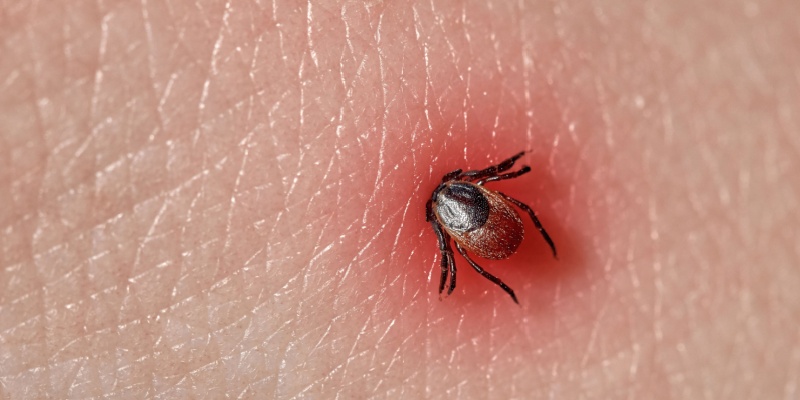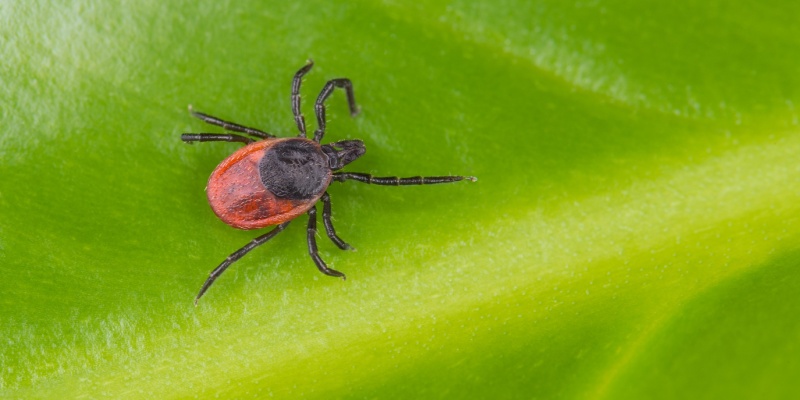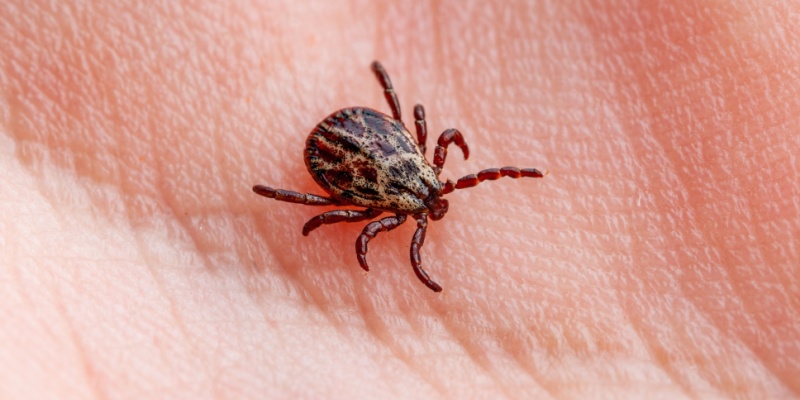Ticks are vectors for some of the most serious and potentially debilitating diseases. In Maine, where outdoor activities are a staple of community life, understanding the dangers of tick-borne diseases is crucial for public health and personal safety. Here’s an in-depth look at the dangers of tick-borne diseases in Maine and how you can protect yourself and your family.
Understanding Tick-Borne Diseases
Tick-borne diseases are illnesses transmitted to humans and animals through the bite of infected ticks. These diseases are caused by various pathogens, including bacteria, viruses, and parasites. The most common tick-borne diseases in Maine include:
Lyme Disease:
Lyme disease is the most prevalent tick-borne illness in Maine. It is caused by the bacterium Borrelia burgdorferi and is transmitted primarily by the blacklegged tick (deer tick).
Symptoms:
- Early-stage: Fever, headache, fatigue, and a characteristic bullseye rash (erythema migrans).
- Late-stage: Arthritis, neurological symptoms, and heart problems if left untreated.
Ehrlichiosis:
Ehrlichiosis is caused by bacteria of the Ehrlichia species, transmitted by the lone star tick and the blacklegged tick.
Symptoms:
- Fever, headache, muscle aches, and malaise.
- Can progress to severe respiratory and neurological complications in some cases.
Anaplasmosis:
Anaplasmosis is caused by Anaplasma phagocytophilum, transmitted by the blacklegged tick.
Symptoms:
- Fever, headache, muscle aches, and malaise.
- Severe cases can involve respiratory distress and organ dysfunction.
Rocky Mountain Spotted Fever (RMSF):
Although less common, RMSF is a serious tick-borne disease caused by Rickettsia rickettsii, transmitted by the American dog tick and the Rocky Mountain wood tick.
Symptoms:
- High fever, headache, rash, nausea, and vomiting.
- Can be fatal if not treated promptly.
The Impact of Tick-Borne Diseases
Tick-borne diseases can have severe and long-lasting impacts on individuals and communities in Maine. The consequences of these diseases include:
Health Consequences:
- Chronic Symptoms: Persistent fatigue, joint pain, and neurological issues that can last for months or even years after the initial infection.
- Disability: In severe cases, tick-borne diseases can lead to long-term disability, affecting the quality of life and ability to work or engage in daily activities.
- Mortality: While rare, some tick-borne diseases can be fatal if not treated promptly and effectively.
Economic Burden:
- Healthcare Costs: Treatment of tick-borne diseases can result in significant healthcare expenses for individuals and the healthcare system.
- Lost Productivity: Chronic illness and disability from tick-borne diseases can lead to lost workdays and decreased productivity.
Public Health Concerns:
- Increased Incidence: Rising tick populations and expanding tick habitats contribute to an increase in tick-borne disease cases.
- Awareness and Education: Public health campaigns are essential to educate the community about tick prevention and early symptom recognition.
Prevention Strategies
Preventing tick-borne diseases involves a combination of personal protection, environmental management, and community awareness. Here are effective strategies to reduce the risk of tick bites and disease transmission:
Personal Protection:
- Use Tick Repellents: Apply EPA-registered repellents containing DEET or permethrin on exposed skin and clothing when spending time outdoors.
- Wear Protective Clothing: Long sleeves, long pants, and closed-toe shoes help minimize skin exposure to ticks.
- Perform Tick Checks: After outdoor activities, thoroughly check your body, clothing, and pets for ticks. Pay special attention to areas like the scalp, behind the ears, and under the arms.
Environmental Management:
- Maintain Your Yard: Keep grass trimmed, remove leaf litter, and clear brush to reduce tick habitats around your home.
- Create a Tick-Safe Zone: Establish a barrier of wood chips or gravel between your lawn and wooded areas to limit tick migration.
- Use Tick Control Products: Consider using acaricides (tick pesticides) in high-risk areas to reduce tick populations.
Early Detection and Treatment
Early detection and prompt treatment are crucial for preventing the severe consequences of tick-borne diseases. Recognizing symptoms and seeking medical attention quickly can significantly improve outcomes.
Recognizing Symptoms:
- Lyme Disease: Look for the bullseye rash, fever, headache, and fatigue.
- Ehrlichiosis and Anaplasmosis: Monitor for fever, headache, muscle aches, and malaise.
- RMSF: Be alert for high fever, rash, and severe headache.
Seeking Medical Attention:
- Consult a Healthcare Provider: If you experience symptoms after a tick bite or spending time in tick-prone areas, seek medical attention immediately.
- Inform About Tick Exposure: Let your healthcare provider know about your potential tick exposure to aid in accurate diagnosis and treatment.
Effective Treatment:
- Antibiotics: Early-stage tick-borne diseases are typically treated with antibiotics, which are highly effective when administered promptly.
- Follow-Up Care: Complete the full course of prescribed antibiotics and attend follow-up appointments to ensure the infection is fully resolved.
Tick-borne diseases pose significant health risks in Maine, but effective prevention and early treatment can mitigate these dangers. By implementing personal protection measures, managing your environment, and getting professional tick prevention help, you can reduce the risk of tick bites and disease transmission. Early detection and prompt medical intervention are essential for preventing severe health consequences.



